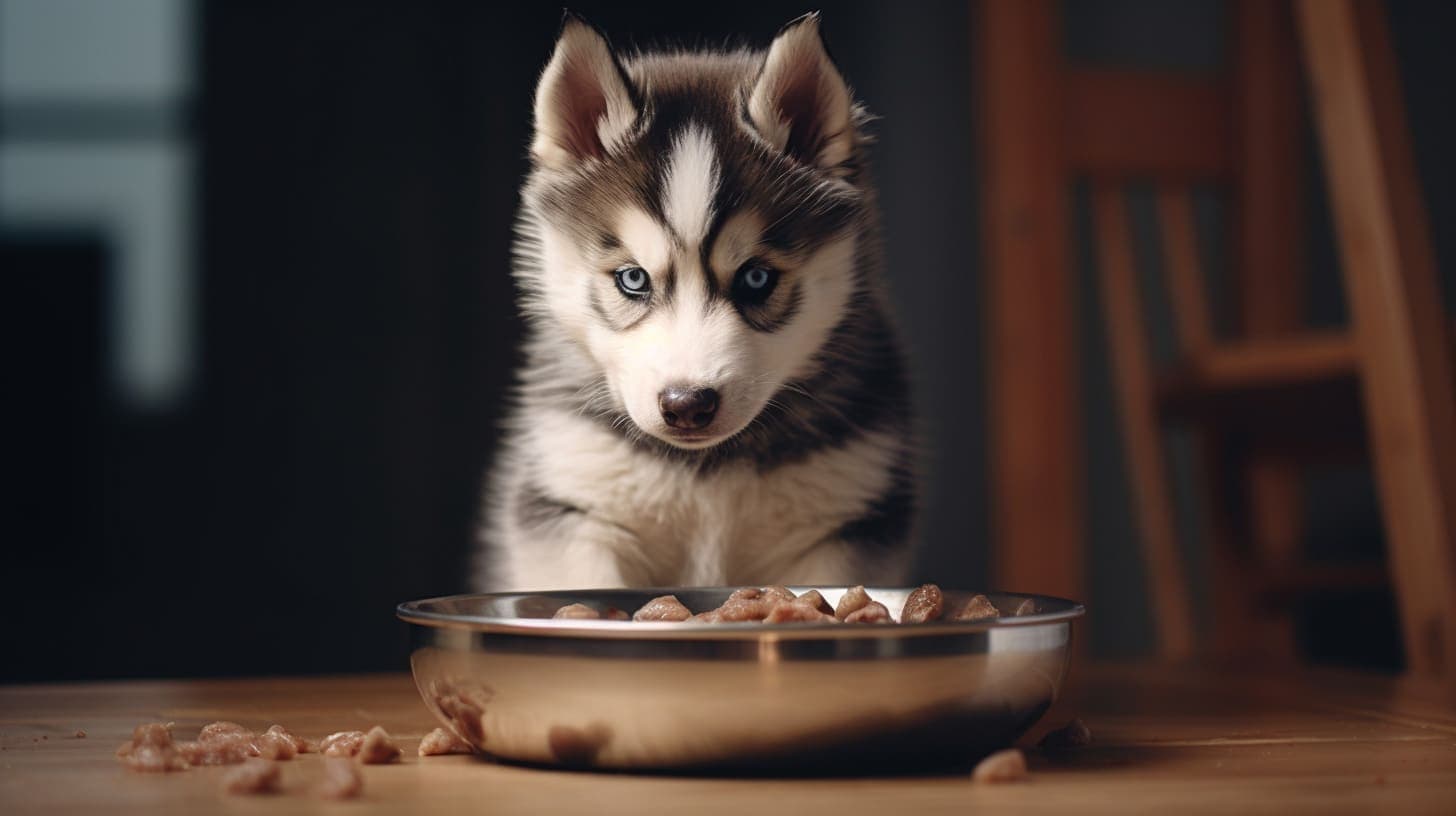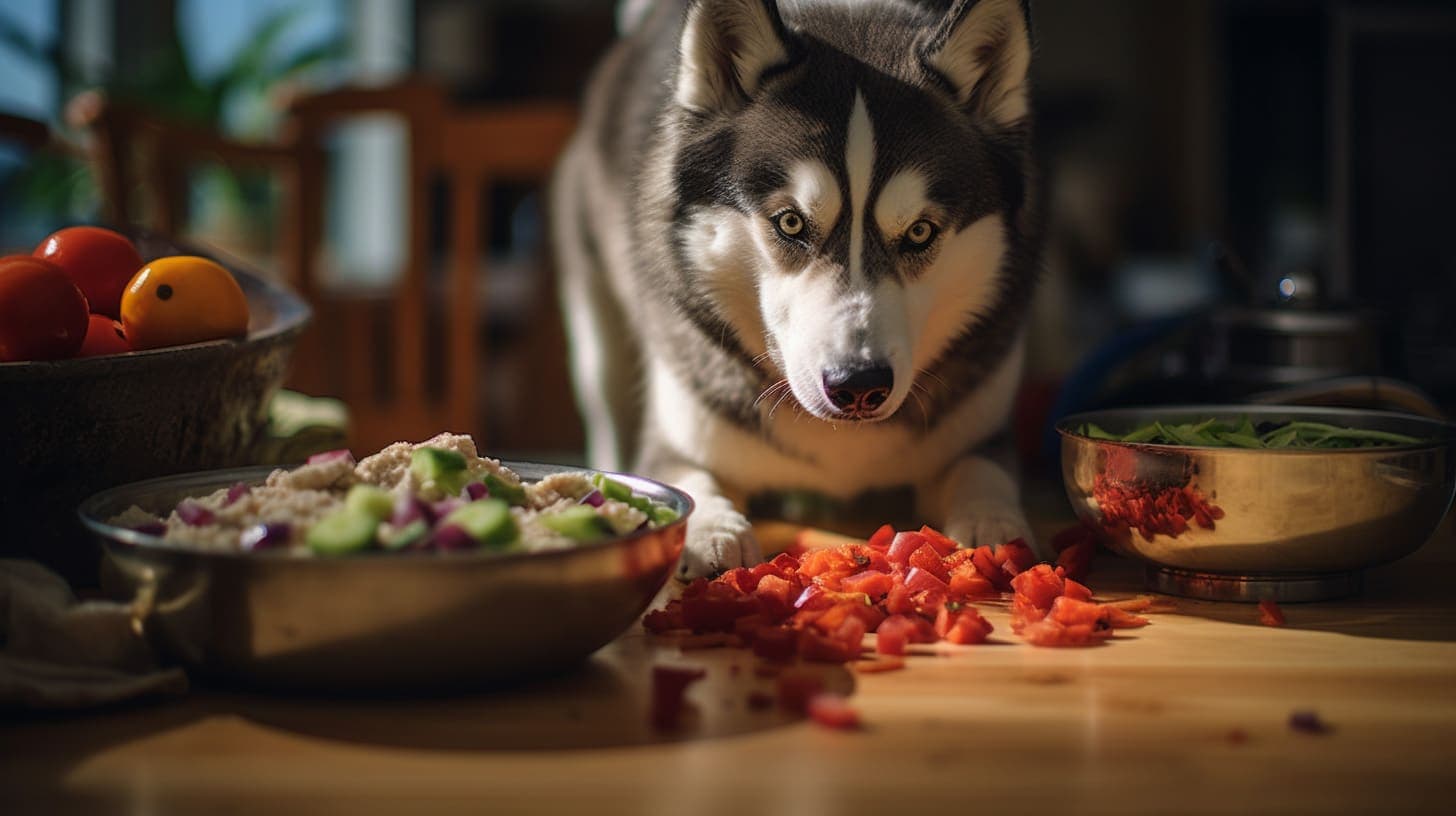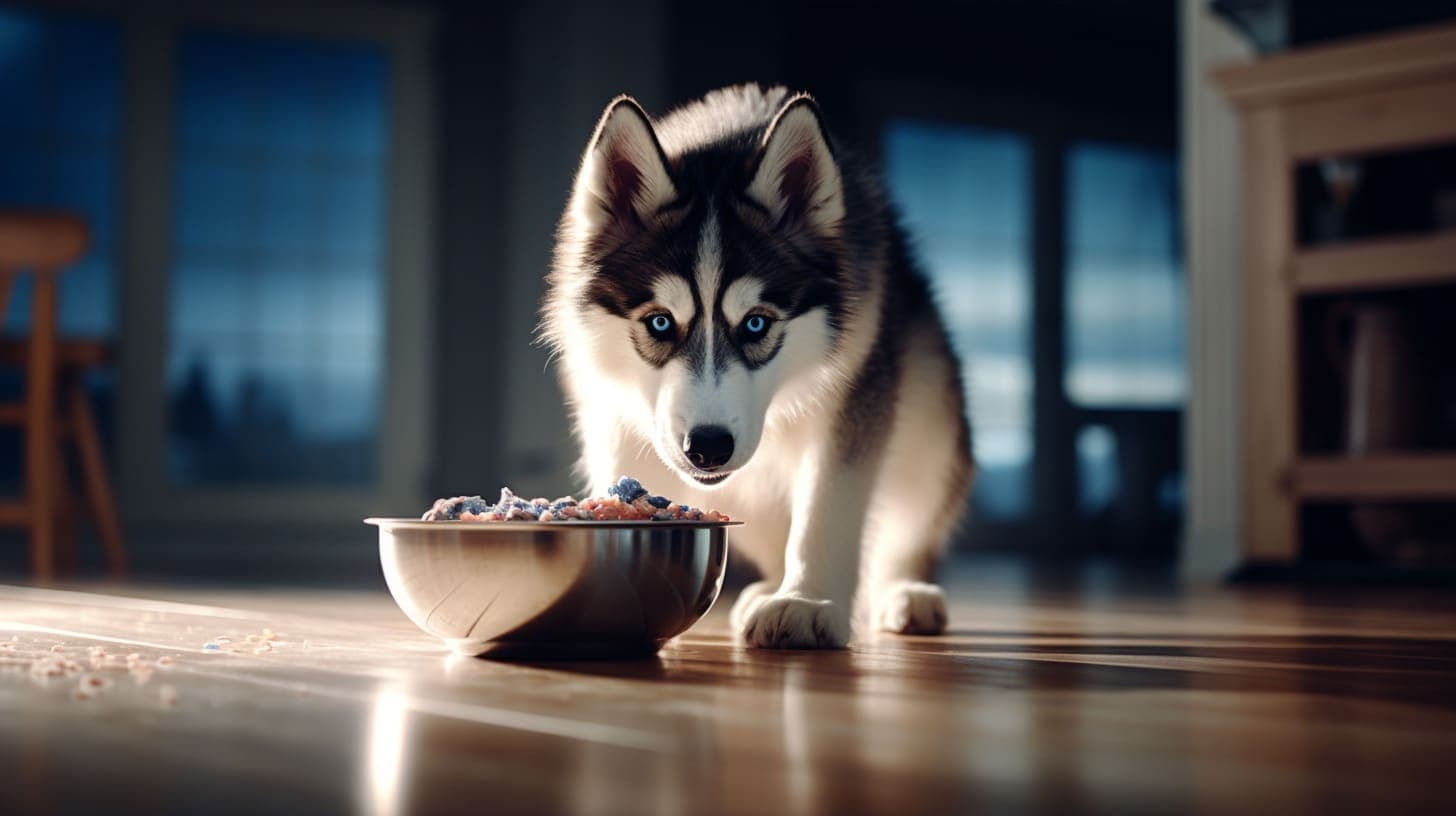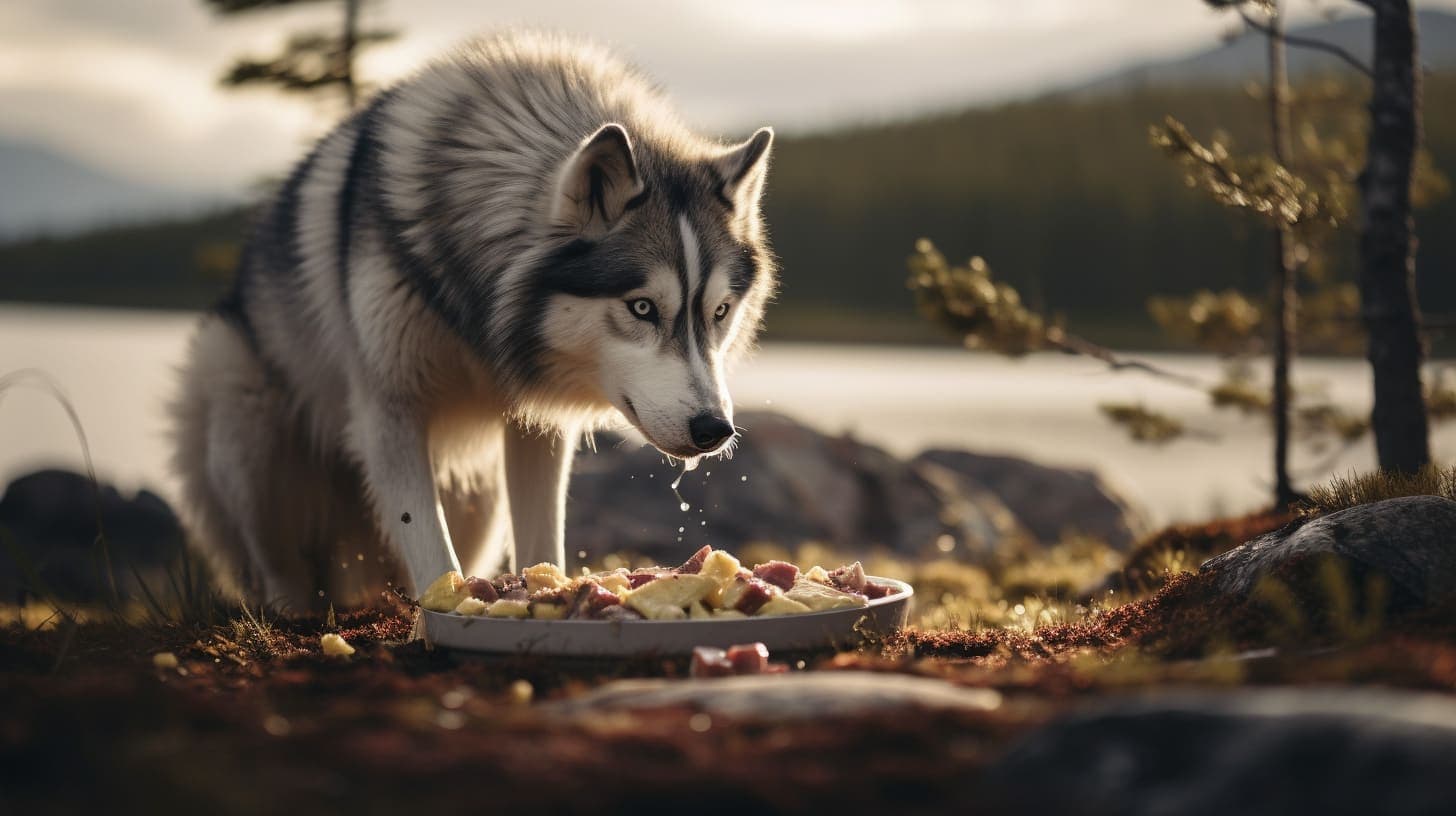Mealtime Math: How Much to Feed a Husky Puppy Daily?
By Team Husky••5 min read

Tags
Husky hydration|Husky puppy care|Husky puppy tips|Preventing dehydration|Puppy health|Puppy water intake
Related Articles

Husky Care>Feeding & Nutrition
Homemade Meals for Your Husky - Nutritious and Safe Recipes
Are you looking for homemade meal recipes for your husky? Explore various nutritious and safe options, from raw to cooked meals, to keep your dog healthy and happy.
March 18, 202412 min read

Husky Care>Feeding & Nutrition
The Top 5 Dog Foods for Keeping Your Husky Healthy
Explore the top 5 dog foods to keep your Husky healthy and thriving. Learn about their unique dietary needs and feeding tips.
October 16, 20235 min read

Husky Care>Feeding & Nutrition
Creating a Balanced Diet for Your Husky: A Comprehensive Guide
Uncover the roadmap to a balanced, nutritious diet for your Husky. Dive into the essentials, from proteins and carbs to monitoring your Husky's health, ensuring they race through life with boundless energy.
October 9, 202310 min read